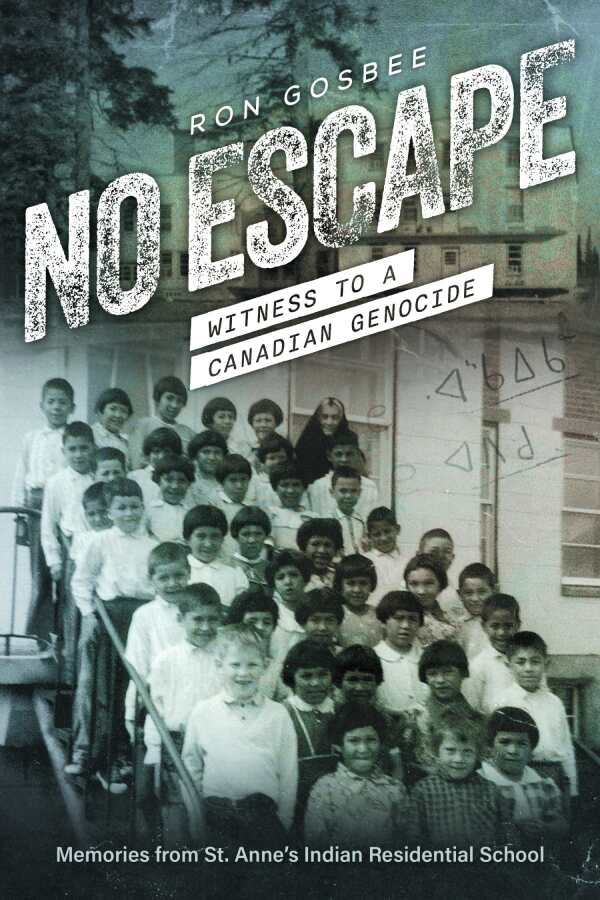No Escape
Witness to a Canadian Genocide
Preserving the experiences and words of Cree children kidnapped from their families and forced into the residential school system, the memoir No Escape pushes back against a system designed to erase cultural heritage.
Ron Gosbee’s memoir No Escape is an agonizing account of the abuse he endured alongside thousands of First Nations children in Canada’s residential school system.
Set against northern Ontario’s desolate, polar bear–inhabited landscape, the memoir begins like a horror story, its dread intensifying as Gosbee recounts how, at five years old, he was sent to St. Anne’s Indian Residential School, though he was not himself Indigenous. There, the children endured years of sanctified cruelties. They faced inhumane conditions that the school administration made great efforts to keep hidden through crafted policies and public relations. Alongside his memories, Gosbee weaves in photographs and the words of his sisters (also students at St. Anne’s), his mother, and his Cree classmates, adding depth and additional perspectives to this impactful work.
Central to the memoir is the theme of silence. The system not only attempted to eliminate the children’s identities through separation from their communities but also forbade any self-expression. Even games, play, and interactions between siblings of the opposite sex were prohibited, despite many, including Gosbee’s sisters, being enrolled in the same schools. Gosbee remembers:
All the children … at St. Anne’s were afraid. It was a ball of fear. We were witnesses to a cultural genocide, a disappearance of a people. We were in an environment that suppressed our need to express the wrongness of a situation … All we had at that age were feelings with no words and no story.
The trauma was so deep and pervasive that it endured long after the students left their schools: “Trauma was so normalized. We tried to forget, and just tried to survive.”
Gosbee uses his unique position as both a non-Indigenious outsider and a survivor to bring due attention to the brutalities inflicted on Canadian Indigenous communities by the church and state. His book reflects on the lasting psychological and cultural trauma caused by this sanctioned system of injustice. The decades that passed since St. Anne’s closing resulted in little accountability, he writes. Thus Gosbee’s account, which includes the names of the abusers, stands as a meaningful act of justice. By preserving the experiences and words of Cree children, it pushes back against a system designed to erase their cultural heritage, demanding acknowledgment of the crimes committed against First Nations communities.
No Escape is a memoir about a childhood of fear and forced silence; it does a powerful job of exposing the ugliness concealed within Canada’s residential school system.
Reviewed by
Claire O'Brien
Disclosure: This article is not an endorsement, but a review. The publisher of this book provided free copies of the book and paid a small fee to have their book reviewed by a professional reviewer. Foreword Reviews and Clarion Reviews make no guarantee that the publisher will receive a positive review. Foreword Magazine, Inc. is disclosing this in accordance with the Federal Trade Commission’s 16 CFR, Part 255.

